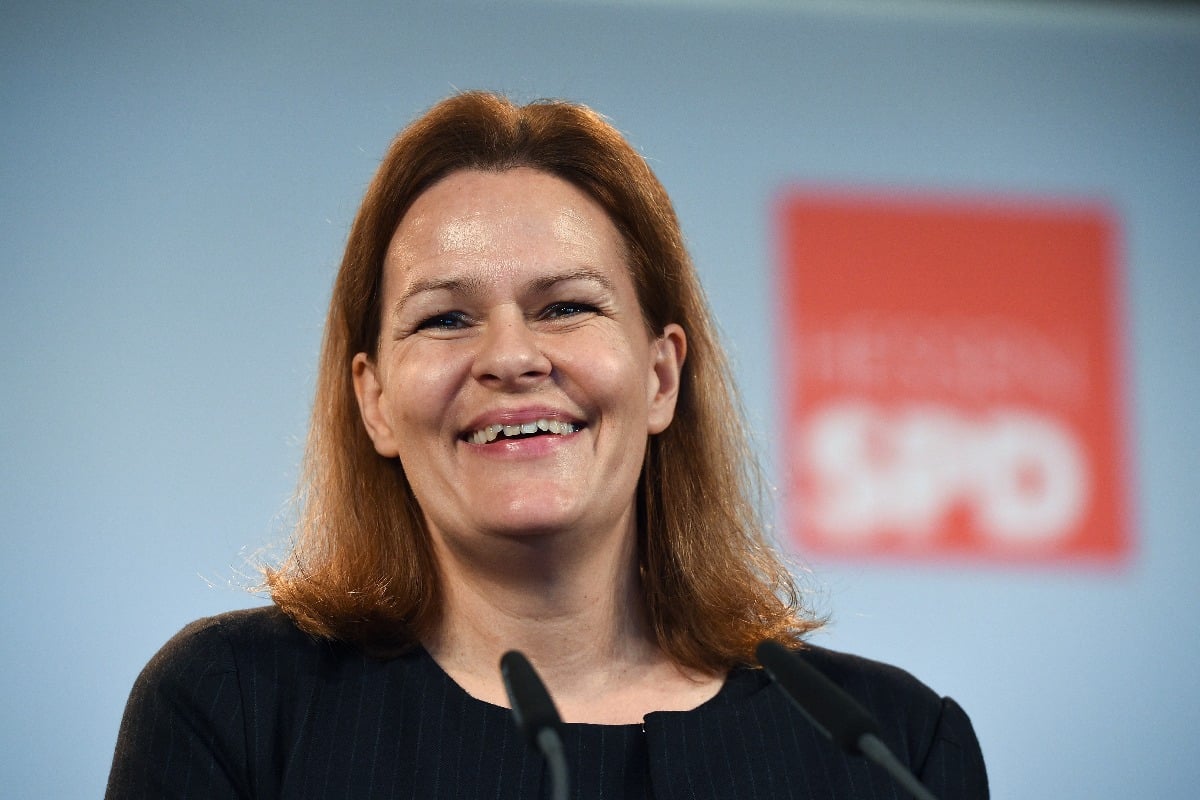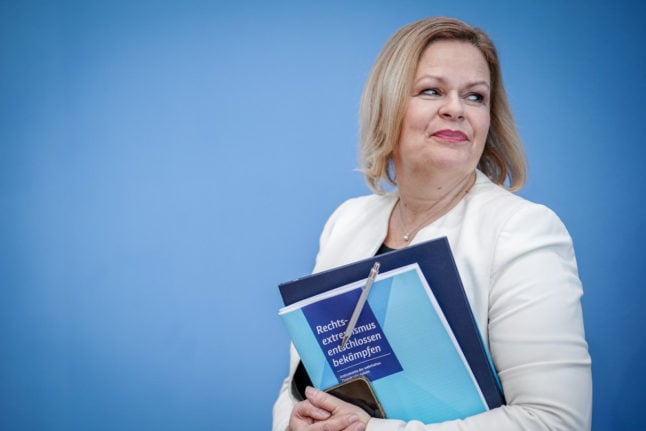After all, few things are as existential to a country’s identity as deciding who gets to be a national or who gets to settle there and be a part of its community.
As Germany’s Interior Minister since late 2021, Faeser has been responsible for overseeing historic legislation on both. At a time when other European countries are tightening up citizenship and immigration rules – even for skilled, well-integrated immigrants – Faeser’s German Interior Ministry is betting on more openness.
March saw sweeping immigration reforms – designed to make it easier for skilled workers to come to Germany, bring their parents if they wish, and even come before having their foreign qualifications recognised by Germany’s notorious bureaucracy.
Skilled workers also have a faster route to permanent residence in Germany – after just 21 months in some cases.
Late 2024 will also see the introduction of the points-based Chancenkarte – or “opportunity card”. A German first, people with enough points could theoretically come to Germany without a firm job offer and look for work while already here. They might even be able to come if they don’t speak German yet – if they have enough points in other areas. In a country not normally known for its flexibility, Faeser’s Interior Ministry is showing much more of it in a bid to combat the country’s skilled labour shortage.
READ ALSO: The changes to Germany’s immigration rules in March 2024
Landmark citizenship reform
Many Local readers will also be familiar with another landmark piece of legislation from Faeser’s desk – Germany’s long-awaited dual nationality reform. After having seen repeated delays due to disputes between the three governing coalition parties, the Federal President finally signed and certified the new citizenship law in late March – starting a three-month countdown for the country’s bureaucracy to adapt to the new rules.
On June 26th, German citizenship law will allow people to hold multiple nationalities when naturalising and shorten the time someone will have needed to be in Germany before applying for citizenship from eight years to five.

It’s not been without its controversy, with the country’s Christian Democrats (CDU) remaining vocal opponents until the end. CDU MP Alexander Throm described it as a “citizenship devaluation law” that has “the most wide-reaching negative consequences for our country” during the Bundestag session that saw the law’s final passage.
During that same debate, SPD MP Dirk Wiese pointed out a historical symmetry – namely that Faeser, a Social Democrat from Hesse, was responsible for passing dual nationality legislation that a CDU Premier of Hesse has originally torpedoed 25 years ago.
READ ALSO:
- German parliament passes landmark dual citizenship reform
- TIMELINE: Germany’s decades-long debate to allow dual citizenship
Throm was right about one thing. The results of Faeser’s legislation are likely to have long-lasting, far-reaching effects. Both the new law’s supporters and detractors can at least agree on its importance.
It may well end up being one of the longest-lasting legacies of the traffic light government. Even if the CDU take the Chancellery again in 2025 – as current polls would suggest – no other possible coalition partner is likely to agree to repeal the law. Dual nationality in Germany – and with it the acceptance of multifaceted identity – is likely here to stay, even if a future CDU-led government manages to tighten up immigration or asylum law in the future.

Faeser’s non-flashy style
Despite the weighty nature of the legislation she’s shepherded through her ministry and the Bundestag, Faeser isn’t known for grand pronouncements. She’s largely left it to others to make the public case for the dual nationality law’s importance, like parliamentary rapporteurs Hakan Demir (SPD), Filiz Polat (Green), and Stephan Thomae (FDP). She’s comfortable giving breakfast show interviews but rarely hits the evening talk show circuit.
A legislative workhorse, Faeser just seems to move on to her next task without a lot of fanfare for the one she just completed. The reason is likely equally unglamorous – she just has a lot to get done. Today immigration and citizenship reform, tomorrow proposals to tighten gun controls in Germany or issue visa bans for Russian athletes. She also found time to be her party’s top candidate in last autumn’s state election in her home state of Hesse.
Having never had a federal office before becoming Interior Minister, Faeser came from Hessian state politics, where she served as a member of the state parliament from 2003 to 2021, eventually becoming the Hessian SPD state party leader in 2019. At the time she became a minister in 2021, few Germans outside of Hesse had heard of her – never mind internationals.

Media outlets both inside and outside of Germany keep their main focuses on politicians like Chancellor Olaf Scholz, Foreign Minister Annalena Baerbock, Vice-Chancellor Robert Habeck or Finance Minister Christian Lindner. With the controversy over Berlin’s strategy in Russia’s war against Ukraine, this is perhaps understandable.
But such a focus might sometimes miss another fundamental shift currently underway in Germany – as the country changes its approach to who gets to be a member of its national community. Nancy Faeser may well be one of the few members of the current German government to have a legacy that lasts well beyond her time in office.
Agree with her policies or not, that deserves more German and international reflection.



 Please whitelist us to continue reading.
Please whitelist us to continue reading.
Member comments